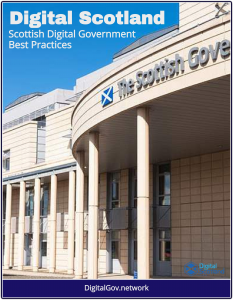Scottish Government Health and Social Care Service Renewal Framework
The healthcare system in Scotland, as in all parts of the UK, faces major challenges, including waiting lists for operations, an ageing population, and staff shortages.
 Described here, the Health and Social Care Service Renewal Framework (SRF), published by the Scottish Government on June 17, sets out a strategic vision to transform Scotland’s health and social care services over the next decade, from 2025 to 2035.
Described here, the Health and Social Care Service Renewal Framework (SRF), published by the Scottish Government on June 17, sets out a strategic vision to transform Scotland’s health and social care services over the next decade, from 2025 to 2035.
The framework aspires to create a Scotland where people live longer, healthier, and more fulfilling lives by ensuring services are sustainable, efficient, high-quality, and accessible.
It responds to growing financial pressures and rising demand driven by demographic changes, building on the Operational Improvement Plan and Population Health Framework to deliver immediate improvements and long-term systemic reform.
The SRF is underpinned by five core principles that guide its design and delivery. It prioritizes prevention over reactive treatment, focusing on proactive measures to improve population health. Services are oriented around the needs of populations rather than structural boundaries, emphasizing community-based care over hospital-centric models. The framework places people at the heart of care, tailoring services to individual needs rather than system constraints, and embraces modern digital solutions to replace outdated methods, enhancing efficiency and accessibility.
Transformation is structured around four key areas. First, service delivery will shift towards community settings, making day-case treatment the norm and reducing reliance on hospitals. Second, governance and accountability will be strengthened through updated NHS Board guidance, clearer performance oversight, and collaborative planning, including the establishment of NHS Delivery, a new body consolidating functions of NHS National Services Scotland and NHS Education for Scotland.
Third, workforce and financial planning will involve collaboration with public, third, and independent sectors to align resources with service needs. Finally, data and digital innovation will enhance access to health data for research, streamline information sharing, and incorporate patient-reported outcomes to improve care quality.
The framework adopts a three-horizon model for implementation, with detailed actions for the first five years, including specific plans for Year 1, and broader objectives for Years 5 to 10. Collaborative leadership is central, fostering partnerships with NHS Boards, Community Planning Partnerships, and other stakeholders to ensure equitable and transparent resource allocation.
The SRF addresses findings from Audit Scotland’s report on NHS governance by enhancing accountability and integrating national, sub-national, and local population plans. Financially, the 2025–26 Scottish Government Budget allocates £21.7 billion to health and social care, a significant increase since 2006–07, but growing demand necessitates efficient resource use guided by allocative and population value principles to ensure equitable distribution.
Addressing health inequalities is a core focus, particularly the “inverse care law,” where those with the greatest need often face barriers to access. The SRF aims to reduce disparities, especially in socio-economically disadvantaged and rural or island communities, through targeted reforms.
Impact assessments, including the Equality Impact Assessment, Island Communities Impact Assessment, and Fairer Scotland Duty, highlight and address inequalities across protected groups and geographic challenges. Key initiatives include the creation of NHS Delivery to streamline support, training, and digital services under a “Once for Scotland” approach, a data strategy with Research Data Scotland to improve data access, and legislation to enhance information sharing.
Due to tight timelines, initial consultation was limited to key partners, with plans for broader public engagement during implementation. Detailed actions beyond Year 5 remain flexible, reflecting the SRF’s long-term adaptability. Overall, the framework provides a comprehensive roadmap for reforming Scotland’s health and social care system, emphasizing prevention, community care, digital innovation, and equitable access to achieve sustainable, person-centered services.




